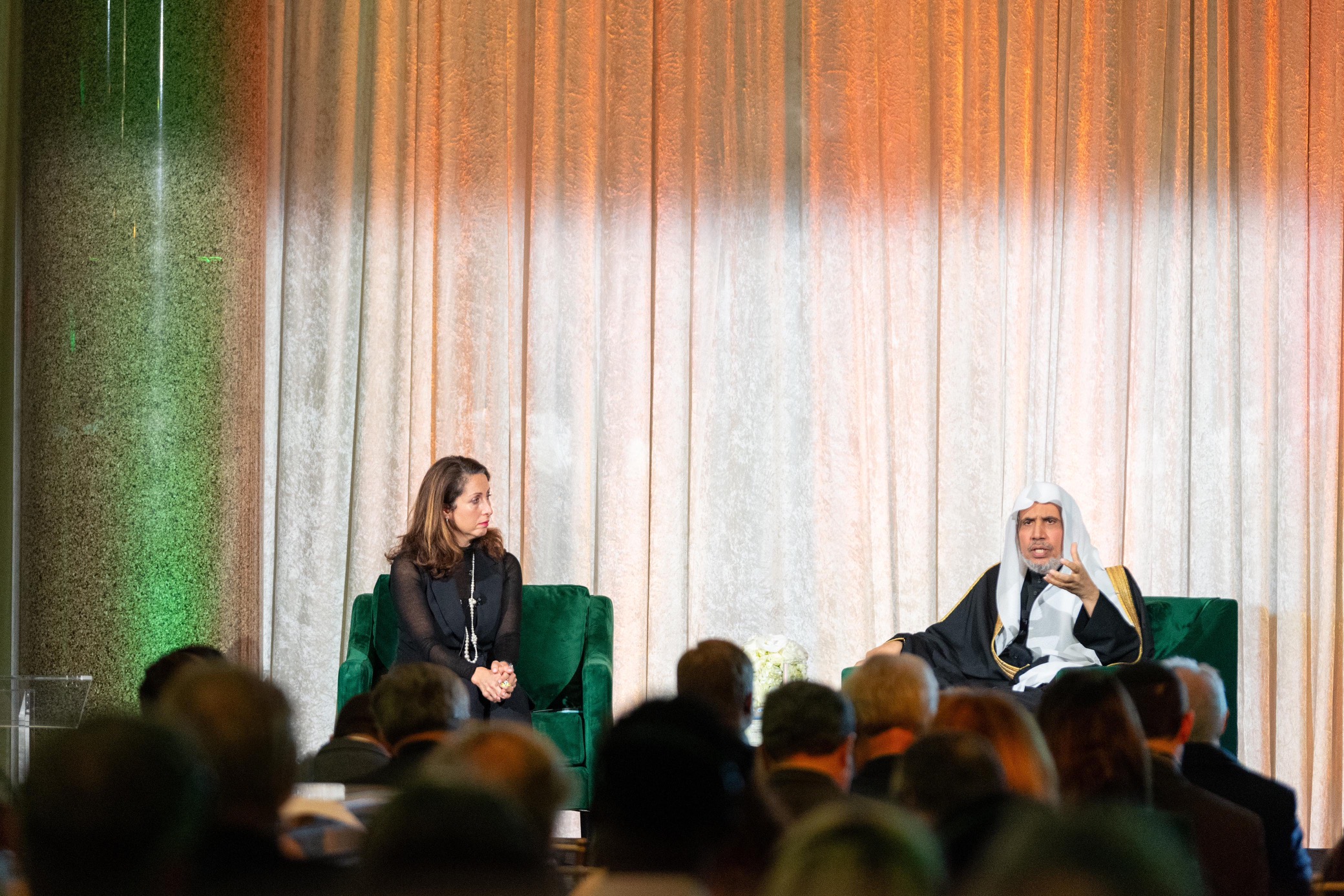
Washington: Dr. Al-Issa Holds Meetings with US Congress Members, Think Tank Leaders, and Policymakers; Chairs Council of Islamic Leaders in the Americas
Washington: Dr. Al-Issa Holds Meetings with US Congress Members, Think Tank Leaders, and Policymakers; Chairs Council of Islamic Leaders in the Americas
Dr. Al-Issa: The Two-State Solution is the Sole Just Path to Regional Peace
The Council of Islamic Leaders in the Americas Adopts the "The Charter of Makkah" as a Scholarly approach and Roadmap
His Excellency Sheikh Dr. Muhammad bin Abdulkarim Al-Issa, the Secretary General of the Muslim World League (MWL) and Chairman of the Organization of Muslim Scholars met in Washington, D.C. with members of the US Congress, think tank leaders, researchers, and policymakers. The open dialogue addressed a range of topics related to the MWL’s Islamic and Humanitarian goals.
Additionally, His Excellency chaired the meeting of the Council of Islamic Leaders in North and South America, an initiative of the Muslim World League aimed at promoting the principles of the "The Charter of Makkah".
During the meeting, he endorsed the document as a scholarly approach and roadmap for training imams across the Americas.
In an open dialogue at several events in the US, His Eminence addressed key global issues related to the MWL's objectives worldwide. He emphasized the core values of Islam, which promote peace and harmony among diverse human cultures. His Eminence highlighted the importance of fostering friendship and cooperation among nations, especially in the face of ideologies that encourage conflict and religious or civilizational clashes. He called for meaningful and effective dialogue grounded in mutual understanding and positive exchange.
During the dialogue, several topics were discussed concerning the role of religious scholars from various faiths in supporting peace efforts in the region; emphasizing the importance of their spiritual influence in countering religious and political extremism, which fuels escalation and conflict. It was noted that extremists often exploit religious sentiments to justify dangerous actions, leading to serious developments, setbacks, and further complications.
His Eminence also emphasized the importance for religious scholars worldwide, in all their diversity, to approach religious values with greater wisdom and attentiveness. He highlighted that these shared values, which call for constructive dialogue and positive outcomes, unite them in their common goals.
His Eminence pointed out that the Palestinian cause remains a central focus of international attention, particularly for the Arab and Islamic world, stressing that peace cannot be achieved without addressing the Cause of Palestine. He underscored the significant role of the Kingdom of Saudi Arabia, reviewing its efforts, including its presidency of the first meeting of the international coalition to implement the two-state solution, which was held last October. He also praised the Kingdom's ongoing diplomatic efforts to end the destructive war in Gaza and activate international accountability mechanisms.
His Eminence reiterated that Saudi Arabia's stance on the Palestinian issue is clear, consistent, and unwavering, stating that the two-state solution is the only just path to peace in the region. He added that its implementation requires rejecting extremist ideas that do not lead to a solution or peace.
His Excellency reviewed the MWL’s efforts in fostering unity within the Islamic world, highlighting the "The Charter of Makkah", signed by over 1,200 muftis and scholars, along with more than 4,500 Islamic thinkers. He also referenced the "Building Bridges between Islamic Madhabs" document, which unites diverse Islamic Madhabs in the presence of prominent religious leaders, including muftis, senior scholars, and key religious authorities.
He also highlighted the MWL’s initiative "Building Bridges between East and West," hosted at the United Nations Headquarters in New York. The event featured speeches from the Secretary-General of the United Nations, the President of the UN General Assembly, and the High Representative for the Alliance of Civilizations, alongside prominent religious, intellectual, and academic leaders.
The initiative focused on developing and activating dialogue mechanisms to create a tangible impact in addressing numerous important issues that have remained unresolved for various reasons. It emphasized cooperation based on shared commonalities, which are many, in the face of ideologies promoting religious, ethnic, and civilizational conflict—particularly those slogans that directly or indirectly incite hatred and racism.








